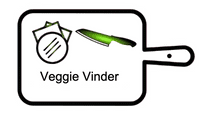What Does Kale Taste Like? Does Kale Taste Good?
Kale is a leafy green vegetable that has recently become very popular.
In fact, it was named the healthiest food in America by Consumer Reports magazine.
But does kale taste good?
And is it really healthy?
Kale is rich in vitamins, minerals, fiber, antioxidants, and other nutrients.
It also contains high amounts of calcium, iron, magnesium, potassium, and vitamin C.
Kale is often described as bitter or sour.
This is because its flavor is similar to broccoli, cabbage, and spinach.
If you don’t like the taste of these vegetables, then you probably won’t enjoy kale either
What is Kale?
Kale is a leafy green vegetable that belongs to the cabbage family. It is known for its nutritional value and health benefits. Kale contains many nutrients such as vitamin A, C, E, B6, folate, calcium, iron, magnesium, phosphorus, potassium, zinc, copper, manganese, fiber, protein, omega 3 fatty acids, and antioxidants.

Nutritional Benefits of Kale
Kale is a superfood because it is rich in vitamins, minerals, and other nutrients. It is very low in calories and fat, but high in fiber. It is also a good source of protein. It is loaded with vitamins A, C, E and K. It is also a great source of calcium, iron, magnesium and phosphorous.
What Does Kale Taste Like? Does Kale Taste Good?
Kale is a leafy green vegetable that tastes delicious. It is also known as “cavalo nero” in Italian. It is a member of the cabbage family and is closely related to broccoli and brussels sprouts. It is available year round, although it is usually harvested during the fall months. It is a popular ingredient in soups, salads, and stir-fries.
How to Cook Kale?
To cook kale, simply wash it well and remove any tough stems. Then chop it into bite sized pieces. Add it to a pan with olive oil and garlic. Season with salt and pepper. Cover the pan and let it simmer until tender. Remove from the heat and serve.
How to Choose Kale?
Kale is a dark leafy green vegetable that tastes great raw or cooked. It contains lots of vitamins A, C, and K, fiber, calcium, iron, potassium, magnesium, manganese, and folate. Kale is also rich in antioxidants, making it a powerful cancer fighter. It’s also a good source of omega 3 fatty acids, which help maintain healthy skin, hair, and nails.
How to Store Kale?
To store kale, wash it thoroughly and pat dry. Remove any stems and tear into bite-size pieces. Place kale in a plastic bag or container and refrigerate for up to 5 days. To freeze kale, place in a freezer bag and freeze for up to 6 months. Thaw frozen kale overnight in refrigerator.
What does kale taste like when cooked?
continue program
What does raw kale taste like?
Kale is a leafy green vegetable that is rich in nutrients. It contains many vitamins and minerals such as vitamin A, C, K, calcium, iron, magnesium, phosphorus, potassium, zinc, copper, manganese, folate, niacin, riboflavin, thiamine, pantothenic acid, biotin, and selenium. It is also a good source of fiber and protein. However, the leaves of kale are bitter and unpalatable. This is because they contain oxalates, which are toxic substances. Oxalates are found in spinach, rhubarb, beetroot, parsley, celery, broccoli, cauliflower, brussels sprouts, cabbage, and other vegetables. These compounds prevent absorption of calcium from the gut. Therefore, if you eat these vegetables raw, you will not absorb enough calcium. In addition, oxalates bind to proteins and fats in the digestive tract, causing indigestion and constipation.
Is kale toxic to humans?
continue program
What do kale taste like?
continue program
What’s kale taste like?
continue program
Why is kale disgusting?
Kale is a leafy green vegetable that tastes bitter. It is usually cooked until tender but if you eat it raw, it will taste very bitter. Kale contains oxalic acid, which is what gives it its bitterness. Oxalic acid is found in many fruits and vegetables, such as strawberries, raspberries, spinach, rhubarb, and beans.
What does kale taste like and how do you cook it?
Kale tastes great when cooked! Kale is a leafy green vegetable that is rich in nutrients such as vitamin A, C, E, iron, calcium, magnesium, manganese, phosphorus, potassium, zinc, copper, fiber, folate, and omega 3 fatty acids. It is also a good source of protein. Kale is low in calories and fat and contains no cholesterol.
